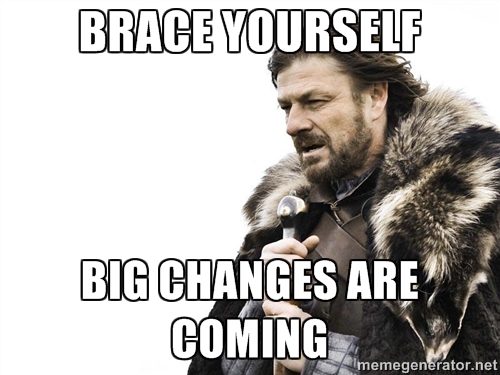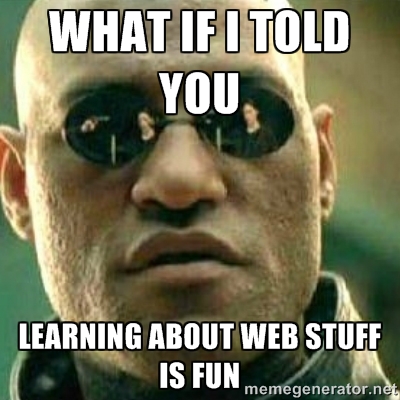Big changes are coming
 March will mark three years since we launched the first University websites in Drupal, and since then we've launched nearly 150. It's been quite a journey and is a major accomplishment that we all share. So take a second to pat yourself on the back for all of your hard work.
March will mark three years since we launched the first University websites in Drupal, and since then we've launched nearly 150. It's been quite a journey and is a major accomplishment that we all share. So take a second to pat yourself on the back for all of your hard work.
As we begin the final college and department sites, we will start implementing major changes for all web ambassadors and how websites are accessed and edited. Pay attention, because this is going to affect you.
Welcome to the Web Ambassador Program
A full traini ng program for web ambassadors has always been our intention, but we've been so slammed with building sites that we've only touched the surface of what you need to know. Also, we've allowed web ambassadors to do as much or as little as they wanted because we were moving so fast.
ng program for web ambassadors has always been our intention, but we've been so slammed with building sites that we've only touched the surface of what you need to know. Also, we've allowed web ambassadors to do as much or as little as they wanted because we were moving so fast.
That changes now.
Our web ambassador program, just as it is at other universities (trust us, we've checked), will soon require more training for each of you and will provide you with certificates and badges as you move forward. These trainings and learning sessions are aimed to give you the knowledge you need to better write content and improve your users' experiences. For example, in March we'll be holding a session on user testing and user experience that everyone will be required to attend. We will offer other courses, such as SEO and Google Analytics, as the year goes on.
Making it a priority
 Most people look at updating their websites as a low priority. You have a lot on your plate, we get that. But moving forward, we're looking for ways to increase that priority level because you are the steward of an extremely powerful tool.
Most people look at updating their websites as a low priority. You have a lot on your plate, we get that. But moving forward, we're looking for ways to increase that priority level because you are the steward of an extremely powerful tool.
As a web ambassador, you are responsible for building and maintaining your office/department's most important communication tool. It's not a "set it and forget it" situation, and we're working on a plan to encourage more emphasis on your sites.
Removing access to source code
 When we launched the initial version of our templates, there was a lot of freedom in what you did and didn't have access to. The ability to edit source code was one that we initially wanted to turn off, but decided to see how it played out.
When we launched the initial version of our templates, there was a lot of freedom in what you did and didn't have access to. The ability to edit source code was one that we initially wanted to turn off, but decided to see how it played out.
In the near future, we will be removing that access for all sites. No exceptions. For those of you who want to include something custom on your page that requires source code editing, you will need to work with us to make it happen.
There are several reasons for this decision, the first being security. No other university we've spoken with allows that access or amount of customization for security and consistency reasons (they were shocked we provided access to it at all), and we're no different. We've also had web ambassadors with the best intentions cause damage to their sites because they added content through source code that does not belong.
I know a few of you are freaking out right now, but I promise it's not the end of the world. Working with us will improve what you are trying to accomplish and will ensure all content is as usable, accessible, and mobile-friendly as it can be.
We're all in this together
 Our web team will continue to keep you updated on learning opportunities and future changes.
Our web team will continue to keep you updated on learning opportunities and future changes.
We're excited to finally be at a point in the redesign process that will allow us to make the web ambassador program what it should be—a community of trained and informed communicators who can continue to share and grow.